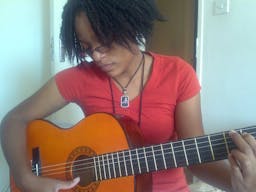Light at the end of a tunnel - my late submission
Jan 21, 2015
Story
Change in my country is a word that has started to be associated with negative connotations. We have a political party opposing the long incumbent government and using the word ‘change’ or ‘chinja’ in the national Shona language in their slogans and political manifesto. Anything that follows has been associated to regime change agenda. Citizens have borne the brunt of a crumbling and slowly recovering economy, poor service delivery, human rights abuses and repression, as well serious intolerance for dissent with the government arbitrarily unleashing the repressive state apparatuses to ‘neutralise’ innocent protesters and dissenting voices. As a result, the youth have retreated into their shells and indeed, away from civic participation for fear of victimization.
Participation, especially in the development of public policies, is a civil duty, and citizens have a stake and an obligation to contribute to governance processes. Poor participation is due to lack of civic education about the issues concerning people. It is also attributable to unnecessary polarization of the public policy formulation processes and reactionaries within our system who resist change. What has also obviously not been deeply entrenched in the populace is the fact that our leaders are public servants who ought to be accountable to us. It has become the role of human rights activists to try and re-socialise society by pointing out the need to reclaim rights.
Reclaiming rights is essential to the realization of freedom of expression as enshrined in principle, in the country’s constitution. I am human rights activist and I believe that Zimbabwe will one day get back on the right track. But it can be achieved through a slow cyber-struggle that we have already waged.
Online spaces like Pulsewire provide liberating opportunities to share messages with the youth who shape the future of this country. While poor participation is often due to fear, new media technologies give people increased platforms to express themselves and sometimes, anonymously too. The biggest plus is garnering the support of other young people across the globe and exploring the experiences of others in overcoming their own challenges.
A study by a leading local human rights organization revealed that 68% of the Zimbabwean population have access to mobile phones. A huge chunk of this population consists of the youth that constantly check their Facebook and Twitter using their phones. This is an opportunity civil society has started to tap into via Frontline SMS, blog links, e-activism campaign, email and twitter alerts. I believe through these small steps, we shall reclaim this country. Little efforts such as these I believe take away a feeling and sense of helplessness that characterises the outlook of many a Zimbabwean.




